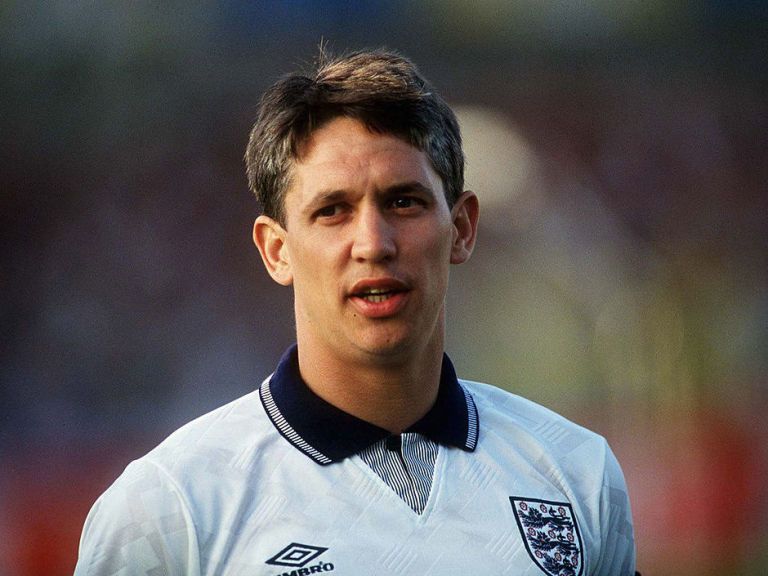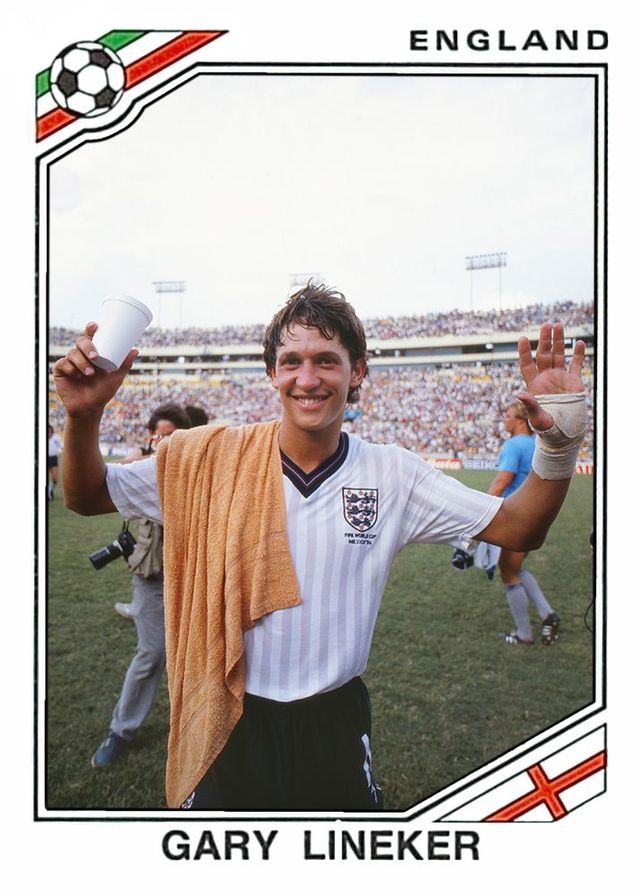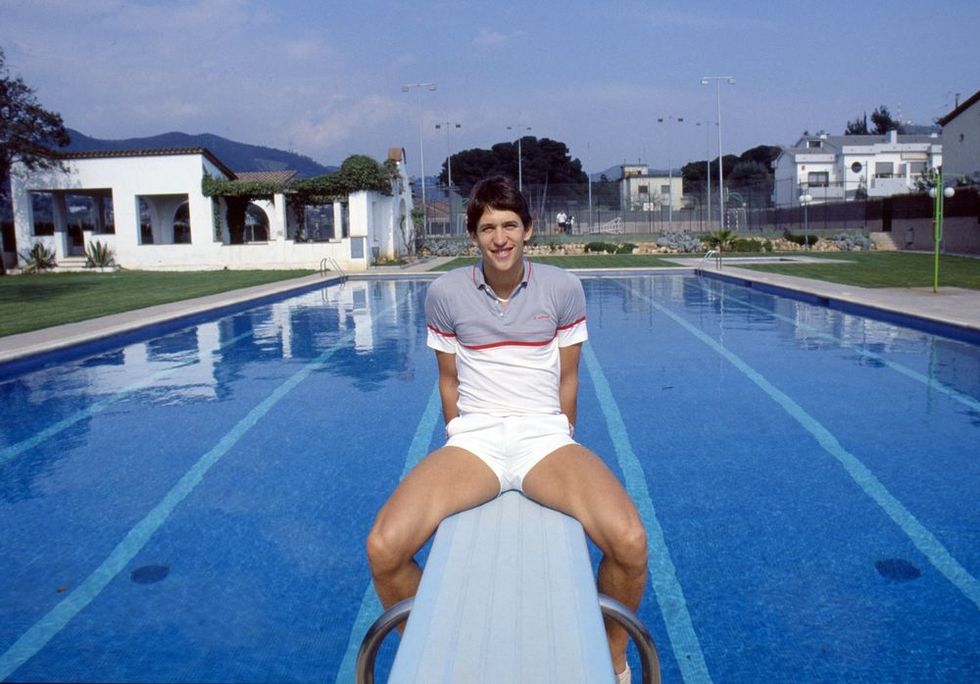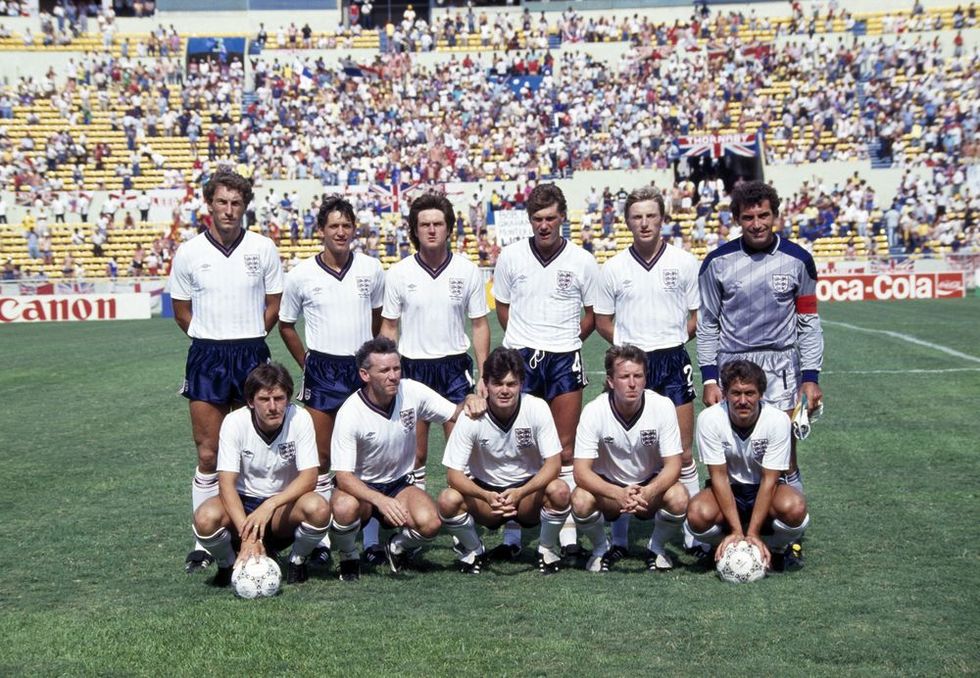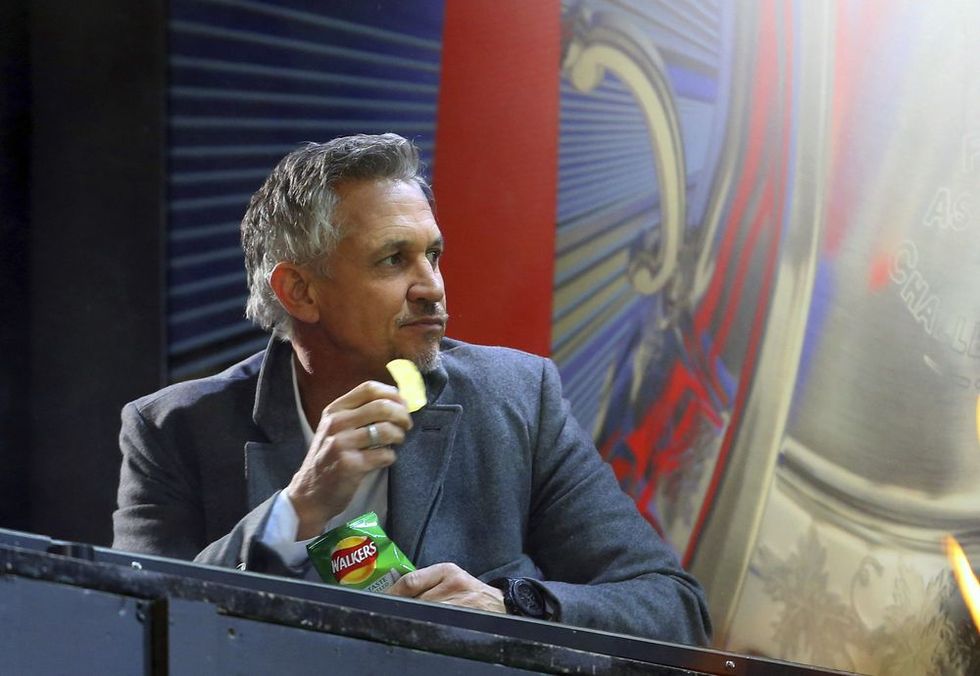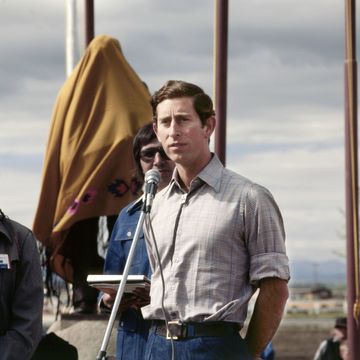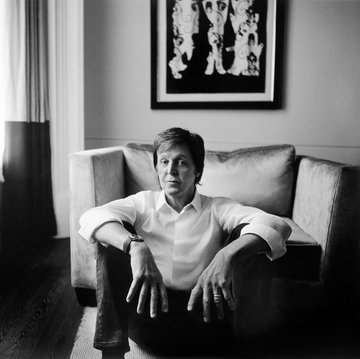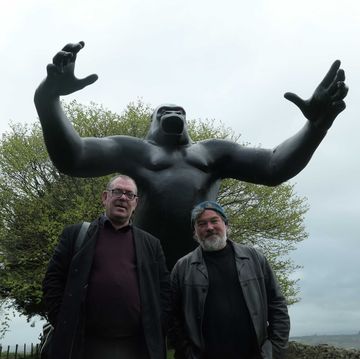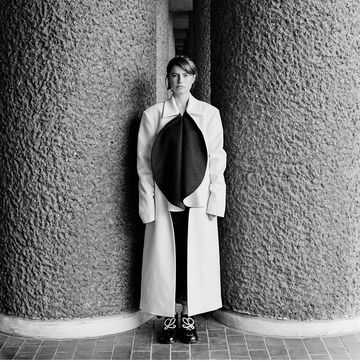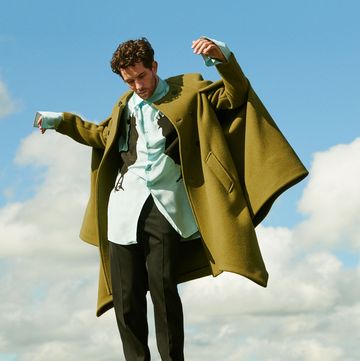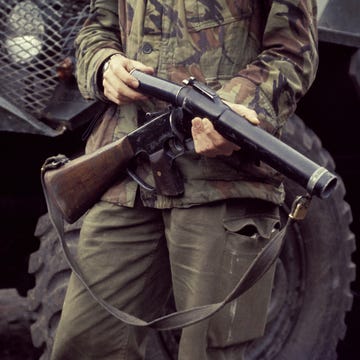Update 13/03/2023: The BBC continues to come under heavy fire for its decision to suspend Gary Lineker from Match of the Day following a tweet criticising home secretary Suella Braverman’s “immeasurably cruel policy” on migrant crossings. As news breaks that he's set to return to the presenter's chair following negotiations with BBC bosses, we revisit writer and broadcaster Danny Kelly’s 2017 article on the former England striker’s surprising third act as the liberal conscience of Twitter.
There used to be rules about what happens to professional footballers once they stepped off the pitch, tearful and clapping, for the final time. Unwritten, unspoken, sure, but hard, fast, unbreakable rules nonetheless. For the older generation who plied their trade before the Premier League unleashed the money tsunami, it meant running a rural pub, occasional ribbon-cutting at a local supermarket and the odd story in the national press about a much-needed hip operation for an old stalwart. More recently, the cash-larded veterans of football in the age of subscription TV and global sponsorship disappear to their huge houses (gold-plated or eco-friendly, according to taste), become pundits on the befuddling array of media platforms, or, of course, return quietly to the distant land from which they came.
Retired footballers don't go on to achieve greater fame than that in which they basked in their playing days, don't have a second career at which they excel as much as when they were wearing shin-pads, and don't invite national scrutiny with their carefully considered, robustly expressed views on the personalities, politics and foibles of the wider world. And they most certainly don't go on to be more loved than when they were playing a game that borders on being a national obsession.
And yet all these edicts have been smashed into smithereens by a figure who in his playing days would have been considered among the least likely contenders for the role of revolutionary, rule-bender or mould-breaker. Enter the clean-cut (he still manages to appear such despite the regular sporting of facial fuzz straight out of The Three Musketeers), Boys' Own good looks of Gary Winston Lineker OBE. In the two decades since he retired, Lineker has gone from national hero to national treasure, risen to the very top of a whole second industry and, most recently, sailed fearlessly forth into the choppy waters of contemporary politics to such great effect that smart people have been moved to declare him the Unofficial Leader of the Opposition. In the midst of all this, he's also found time to destroy the commercial prospects of several once-leading brands of snacks. How the hell has all this happened?
To many, the transformation of Gary Lineker from excellent, smiling footballer, into the media and social beast we see today is a total mystery. Such confusion is based on a misunderstanding of Lineker's playing career and is not the fault of the bewildered. Despite the almost endless hours people like me spend dissecting, analysing and poking it with a stick, football always ends up being portrayed in broad, simplistic, unarguable strokes. Hence the playing days of Lineker — studded with hundreds of goals for club and country, yet unblemished by a single red or yellow card — have been characterised as those of a grinning goody-goody goalhanger. It's a picture (while comfortable as an unthinking way to label England's most-feared striker of the colour-TV era) that utterly distorts the kind of player he was, and obscures the things he achieved.
Lineker was born into a family of Leicester greengrocers. In the mid-Seventies, their stall in the city's Market Place was opposite Revolver Records (where, as a student at the city's university, I used to nab the latest punk rock releases). Even then, the teenage Gary was a talking point. Prodigiously talented at both cricket and football, his hugely influential grandfather William — himself a very decent footballer — had guided him towards a career in the latter, and he'd signed for Leicester City. Any pressure that might have been put on him by the locals was alleviated by the fact they already had a dashing, handsome young hero who, bizarrely, would also go on to have a high-profile, post-playing TV career. Three years older than Lineker, David Gower had just made his Test cricket debut as England's great blond hope.
Lineker's own career turned out to be very different from most others, and looking back, provided clear hints that here was a personality that wouldn't conform, in later years, to those stultifying norms imposed on and expected of ex-pros. For a start, he travelled. English footballers are notoriously parochial and stay-at-home, yet the marksman happily embraced chances to play in Spain with FC Barcelona and, even more startlingly, to end his career at Nagoya Grampus Eight in Japan. In both places he learned the language and immersed himself in the culture.
The no-yellow-cards thing, often used to paint Lineker as something of a footballing wimp, is also misleading. Though by no means a savage forward-warrior like contemporaries Steve Bull, Mark Hateley or the dreaded Mick Harford, Lineker could not have survived the football of the Eighties and Nineties by being a weed. This was the era when defenders were allowed to assault their prey with impunity, when the career of the legendary Marco van Basten was ended by repeated atrocities committed with calculated deliberation on his vulnerable ankles, and when Andoni Goikoetxea once tackled Diego Maradona with such maiming ferocity that he gloried forever after in the nickname "the butcher of Bilbao". There was steel beneath Lineker's beaming affability; there had to be.
And there was something else, too. A brain that allowed him to both live in the moment but also to analyse events that were moving so fast they might flummox others. The 1990 Fifa World Cup semi-final between England and West Germany in Turin is correctly identified as the game which transformed English — and consequently European — football by planting the seed of an idea that would become the Premier League. The booking of England's man-boy genius Paul Gascoigne (and his subsequent blubbing at realising that he would now miss the final should England win) caused waves of emotion that bordered on hysteria among the vast TV audience watching back in Britain. The penny-drop, light-bulb-on knowledge that football could be drama as well as sport, soap opera as well as combat, and that it was being viewed by swathes of people you wouldn't normally consider "football fans" (especially the middle classes and women) set the minds of media moguls ticking. The result, a couple of years later, was the brave new world of the Premier League, a money tree irrigated by Paul Gascoigne's tears.
But something else happens in the immediate aftermath of Gascoigne's sobs. Almost unnoticed in the mayhem of one of the most intense matches in World Cup history, Gary Lineker — who minutes before had scored to leave the game teetering on a 1–1 knife-edge — trots over to check on his distraught teammate. Caught, almost incidentally, in a TV close-up, he doesn't like what he sees, and makes a gesture to the distant England bench. Pointing with his right index finger in the general direction of his eye and his temple, Gary communicates both the fact that Gazza is not in the best mental state, and that the hierarchy need to watch him closely. In the volcanic cauldron of the Stadio delle Alpi, one man was thinking beyond the immediate turmoil, trying to extract the most sense possible from the fraying chaos. It was a coolness of thought that served him well in his professional career, and in the rough and tumble of his chosen life beyond.
In 1994, Gary Lineker retired from professional football, having scored 286 goals. If he'd been subject to the usual rules, he'd have drifted into well-heeled obscurity, appearing on TV every now and then to give his views on some young tyro striker, or shaking a leg on Strictly Come Dancing. But people, smart people, had clearly seen something in him.
A few months after leaving Nagoya Grampus Eight, he was signed up by Walkers to promote their crisps: Leicester's favourite son becoming the face of Leicester's most yummy snack. The partnership's very first TV advert, with the smiling former England captain returning to his native burgh (accompanied by the strains of Peters and Lee's "Welcome Home"), before belying his softie public image by snaffling the last of a little boy's bag of cheese and onion crisps — was an instant hit and an acknowledged classic. Despite the XL ears and the slightly goofy smile, the camera clearly loved Lineker. Walkers went on to make dozens more adverts (so many in fact, that the original joke may have been lost; he's been grabbing kids' munchies for so long, that he now looks just a bit greedy) and Walkers has become the dominant crisp-makers in the UK. It may be mere coincidence, but in 2006, Golden Wonder — Walkers' great rival in the crisped spud caper — went into administration.
Much more controversial, though, was Lineker's fast-tracking in the world of sports presentation. From the moment he retired, it was clear the BBC planned to turn him into the face of the corporation's football, and golf, output. In a closed society, where turf was jealously guarded, and careers moved at glacial pace, there was bitter resentment. I know, because I was there.
Indeed, Gary's nascent broadcasting career did very well to survive its very early stages, and repeated encounters with the rather less formal, official face of the Beeb. Very early on in the piece (and after, no doubt, a decent splash of media training) it was decided to break him in on the old Radio 5 Live. He was to present the Saturday's sporting events on a show that immediately followed one where radio genius Danny Baker and I speculated wildly on whether the corporate boxes at Watford's Vicarage Road resembled the set of Blankety Blank (they did!), and which current footballer was likeliest to be an actual follower of Satan (Brian Kilcline!). And, as is the radio way, England's hero striker would come into our show at some predetermined point to talk about what was going to be on his.
Or, at least, that was the plan. For several weeks the same thing happened. Lineker, sheaves of carefully prepared notes in his hand and that winning beam across his face, would sit nervously down. These were, after all, his first, inevitably tentative, steps into an unknown universe. "So, Gary, what are you going to do for us?" Danny B would ask cheerily. As the response was forming, one or other of us would shout, "Oh my God, it's Gary Lineker!" and the fanfare that announces 20th Century Fox's films would boom from the studio speakers, drowning all other sound. As the trumpet blasts receded, the new radio presenter would attempt to say his piece, only for the whole noisy rigmarole to start anew; "No, really, it's Gary Lineker!..." Dant-da-dah! Dant-da-dah! Dant-el-da-daaaah!...
It was a genuine, if slightly mischievous, tribute to a footballing great — and, I assure you, much funnier in audio than on the page — and it went on and on. Gary's appearances on our programme became hugely popular, without the poor fellow ever getting to say a word. The critical thing is that he immediately understood the gag and played along uncomplainingly. Sometimes he even laughed.
What is certain is that it didn't affect his rise to broadcasting superstardom, which now sees him as the country's most recognisable, in-demand, and, one assumes, highly-paid football frontman. He has totally mastered the skill — it's not an art — of live TV presentation. As one who's done it, let me explain what's happening when you see Gary Lineker hosting Match of the Day. Throughout the day, you have been given a myriad instructions; most of these change, and change again, as the programme approaches; several are entirely contradictory. There is a script and a running order and instructions about camera angles with which you need to be at least passingly familiar. There are several guests, whose performance relies on you asking them the right questions and steering them down the right chat-paths; often as they are taking the piss out of you. You have to read from a teleprompter while trying to look relaxed, all the time receiving messages in an earpiece from an array of interested parties in the control gallery. Cameras whirl around you like stealthy Daleks. And then the red light blinks on...
Don't get me wrong; it is not organ-replacement surgery. But it is pretty complicated, about as difficult as, say, parallel parking on a very busy street. The difference is that you're trying to do the manoeuvre while several million people gawk on, a decent proportion of them hoping you'll fall flat on your arse. The boy Lineker doesn't trip or slip; he has become something approaching brilliant at the job. Regular comparisons with the great Desmond Lynam are lazy and, with the passing of time, pointless. Nor is it Gary Lineker's fault that the BBC's obsession with politeness to still-active players and its determination to iron flat all the sometimes ugly truth about the game renders its football coverage so much limper than that of Sky.
A more accurate measure of Lineker's standing in modern broadcasting is that when BT did their recent billion-pound deal to televise the Uefa Champions League and Europa League (the single biggest contract of its kind in history), there was only one man they thought capable of steering their outrageously expensive new vehicle. The bloke who a few months earlier had stood in front of the Match of the Day cameras, and a wide-eyed nation, in his underpants.
In the last few years, the celebrity that invariably accompanies being a massive success in two of the nation's favourite activities — football and telly — has taken Lineker into a new, and head-spinningly unpredictable, direction. Using a social media following that dwarfs most, he has become a very loud, and very direct, commentator on the social and political issues of the day, at home and abroad.
His chosen conduit is Twitter, where he has over six million followers. His timeline is habitually filled with all the usual chaff; humorous comments about sport; knockabout interactions with his boy-about-town lad George, with whom he's formed a sort of virtual father-son, buddy-buddy comedy act; scratchy interfaces with his friend and would-be nemesis Piers Morgan, around whom Gary runs rings; scattergun opinions on everything except music, about which he claims zero knowledge. And then, every so often, he breaks the most concrete of those golden rules: that ex-footballers should know nothing, and say less, about politics, society or the world beyond that acre of 3G turf.
That's not for Gary. He rails against the hypocrisy and stupidity of politicians, lambasts Donald Trump and wades into the complexities and nuances of Brexit with gusto. Most famously, he has shone a light on the plight of refugees from the war-raddled parts of the globe, calling some attitudes to child refugees "hideously racist" and "utterly heartless". Most of this stuff seriously annoys the self-appointed guardians of Britain and Britishness; the stance on refugees sent them into a paroxysm. Ukip loudhailer Patrick O'Flynn called for his sacking from the BBC. The Sun's front page screamed "OUT ON HIS EARS! — Leftie luvvie Gary Lineker should be sacked". The Daily Mail waited a few days, then rehashed some old waffle about his (perfectly legal) tax arrangements.
In the past, this fusillade of pop-eyed indignation would have left the poor actor/singer/sportsperson in an unenviable heap, scorned and pilloried but with no obvious means of recourse except a libel system that threatened to bankrupt you whether you won or not. Things have changed. Social media — especially Facebook and Twitter — have given individuals a platform from which to defend themselves, and, in the case of some, a voice which reaches further and echoes louder than any newspaper headline. So when Gary Lineker was attacked, he fought back with that cool detachment that made him such a lethal finisher on the football pitch. He backed his detractors down, reinforced his right as a citizen in a democracy to hold views that were anyway far from extreme, and called out their more bizarre claims for what they were: thinly-veiled character assassination; lies.
He has not been sacked, or sent to prison as a tax criminal. His pursuers have underestimated, or don't understand, the power — for good and otherwise — of the new media. People have largely sided with him, though not all. Every time refugees get mentioned, angry voices ask how many he's going to house. As the excellent actor Stephen Mangan points out, that's like expressing a concern about water purity and being asked why you don't get a job in the reservoir. Folk back Gary Lineker because what he says is felt by many, and they object to normal discussion being characterised as treachery or self-interest. They back him because he is unafraid of the swarms of trolls that descend on any successful figure who dares express an opinion which doesn't chime with their own.
And they back him, I feel, because they sense that behind the boyish bonhomie, the bants and the pants, there lies an emotional maturity born of having to deal, in a life largely lived on the front foot, with difficult issues. As an infant, his son George was diagnosed with acute myeloid leukemia. His divorce, years later, from George's mother, Michelle was the end of a romance that began in childhood. And his split last year from his second wife, Danielle Bux, was said to have been because he didn't want to have more children so late in his life. It's an assertion Lineker has left unchallenged, and, in a society that venerates motherhood and sanctifies children, it's a brave and considered stance to take. But when push comes to shove, people admire and trust brave and considered; he and Danielle, for the record, remain, in her words, "the best of friends".
It is not all glory. The honesty of the footballer-turned-broadcaster-turned-citizen- everyman has left him one very large cross to bear. Some time ago, Links (to deploy his hopeless nickname) admitted that during the 1990 World Cup clash against Ireland, he had soiled himself after an aerial clash, surreptitiously wiped his bottom on the grass, and played on. Since the whole thing had been captured (if not commented on) by TV at the time, the admission was meant to be funny, self-deprecating, a full stop after an embarrassing pratfall. It hasn't worked.
Rather, the great unwashed have fixated on one person's miserable misfortune, and take enormous joy in reminding him of the whole sorry moment. If Lineker tweets about London buses, his Twitter replies are filled with hundreds, often thousands, of brainiacs howling "shat on buses!". If he says he likes Pablo Picasso, they squeal "shat on paintings!". If he says he's been to Stonehenge, it's "shat on monoliths!".
It's mostly good-humoured but a joke that surely wears thin. Lineker may well regret having ever have confessed to his lavatorial faux-pas. That must, though, be one of the very few regrets of one of the most successful, well-loved and, most enjoyably unpredictable lives ever lived out by a British sportsman.
